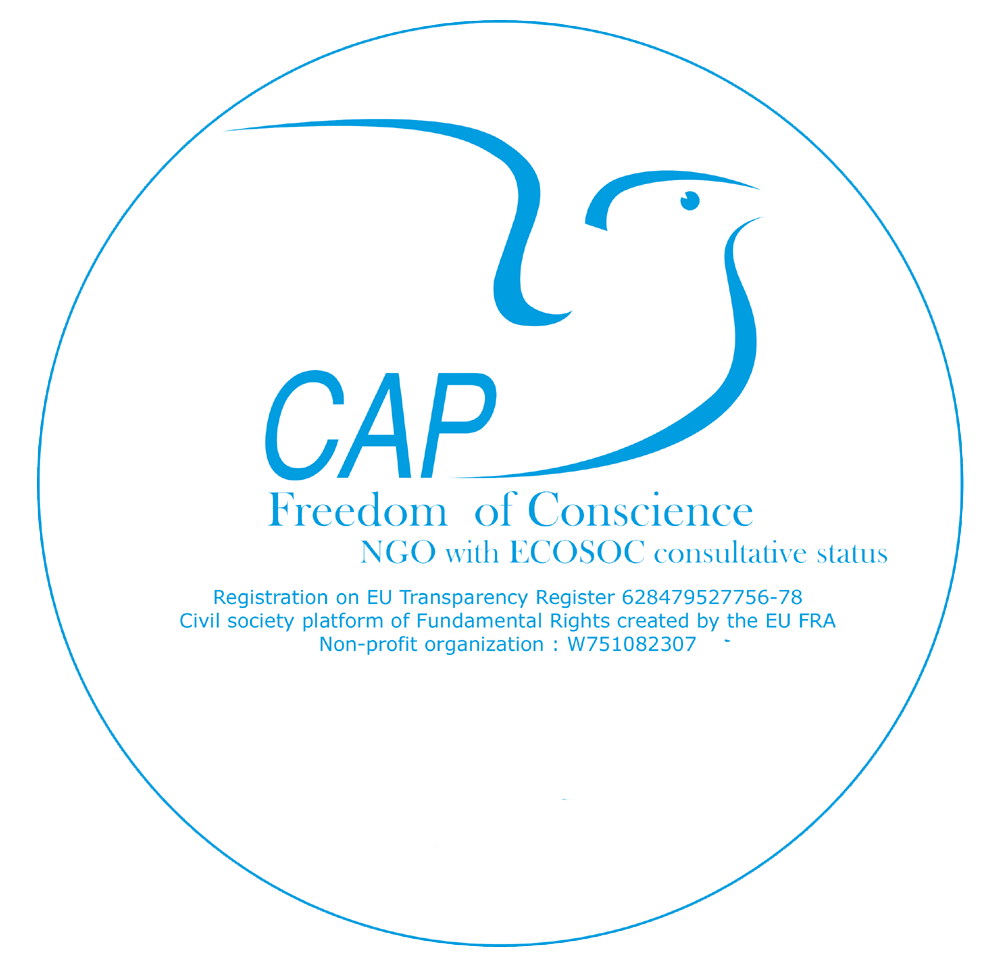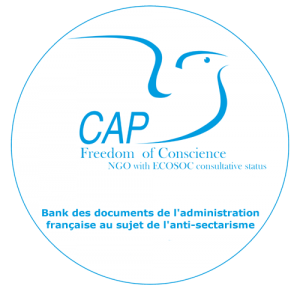The State of Minority Rights in Bangladesh: A Comprehensive Analysis
Distinguished Members of the European Parliament, Esteemed Colleagues,
I would like to express my profound gratitude to the Members of the European Parliament, and Global Human Rights Defense for providing this critical platform to discuss the complex landscape of minority rights in Bangladesh.
CAP Liberté de Conscience is an international non-governmental organization dedicated to defending human rights, with a specialized focus on protecting religious minorities worldwide. While our expertise centers on religious freedom, we recognize that a comprehensive understanding requires insights from diverse expert perspectives.
Current Human Rights Landscape:
Recent United Nations and international assessments have highlighted significant challenges in Bangladesh’s human rights environment. The UN Office of the High Commissioner for Human Rights (OHCHR) press release from February 2025 explicitly describes a “brutal, systematic repression” affecting vulnerable populations, particularly religious minorities.
According to the OHCHR’s preliminary analysis of recent protests and unrest in Bangladesh, the human rights situation has dramatically deteriorated. The report emphasizes that the political upheaval following the January 2024 elections and the subsequent “July Revolution” has led to widespread violations of fundamental rights.
Key observations from the UN report include:
- Excessive use of force by law enforcement agencies
- Systematic suppression of political opposition
- Severe restrictions on freedom of expression and assembly
- Targeted persecution of religious and ethnic minorities
The OHCHR specifically noted that the interim government, despite initial promises of reform, has continued to demonstrate a pattern of human rights abuses. The UN experts called for:
- Immediate and unconditional release of detainees
- Implementation of judicial reforms
- Ensuring judicial integrity and independence
- Protecting freedoms of expression, association, and peaceful assembly
- Holding perpetrators of human rights violations accountable
These findings underscore the critical and urgent need for comprehensive human rights reforms in Bangladesh, with particular attention to protecting the rights of vulnerable minority communities.
Religious Minority Situation:
Drawing from the Global Human Rights Defense (GHRD) Annual Report 2024, the situation for religious minorities in Bangladesh remains critically precarious. The report indicates that “Indigenous communities and religious minorities continue to face systematic marginalization, experiencing persistent discrimination, social exclusion, and targeted violence.”
Through extensive research and documentation, the report outlines key observations that underscore the challenges faced by these groups:
- Systematic Social and Institutional Discrimination: Minority religious communities, including Hindus, Buddhists, and Ahmadiyyas, experience pervasive discrimination in various societal domains, particularly in education, employment, and the justice system, which often lacks impartiality.
- Limited Legal Protections: The report highlights the inadequacy of legal protections for minority groups, as laws that should safeguard their rights are frequently ignored or poorly implemented, leaving them vulnerable to abuse and societal violence.
- Increased Vulnerability During Political Instability: Political unrest exacerbates the existing vulnerabilities of religious minorities. The report states: “The climate of fear during periods of political upheaval often leads to intensified violence against these groups, further entrenching their marginalization.”
- Persistent Threats to Cultural and Religious Practices: Minority communities face restrictions on their religious freedom, with reports of intimidation, harassment, and violence aimed at suppressing their cultural expressions and practices.
These elements collectively illustrate a dire situation that necessitates urgent international attention and intervention to uphold human rights and protect the dignity of religious minorities in Bangladesh.
Ahmadiyya Community: A Critical Case Study:
The Ahmadiyya community represents a particularly vulnerable religious minority in Bangladesh. CAP Liberté de Conscience has extensively documented their challenges, including our 2023 submission to the Universal Periodic Review (UPR), which highlighted three critical concerns:
- Systematic social and legal discrimination
- Increased risk of targeted violence
- Limitations on religious practice and expression
Documented Incidents:
Based on documentation collected by CAP Liberté de Conscience and the International Human Rights Committee between August 2024 and February 2025, we present four detailed case studies that illustrate the systematic persecution of religious minorities, particularly the Ahmadiyya Muslim community in Bangladesh:
- Ahmadnagar Comprehensive Attack (August 5, 2024):
A coordinated assault targeted the Ahmadiyya community in Panchagarh, involving:
- Systematic attack on 117 Ahmadi houses
- Complete vandalization and burning of properties
- Destruction of the main Ahmadiyya mosque
- Burning of 10 motorbikes
- Attack on Jamia Ahmadiyya theological school
- 22 Ahmadis injured, including 16-year-old Shahriar Rakeen, who tragically died after three months of medical treatment due to severe head injuries
- Targeted Religious Infrastructure Destruction:
Multiple Ahmadiyya mosques were systematically attacked across different districts:
- Taraganj (Rangpur): Mosque burned, local Ahmadi leader forcibly evicted
- Bamnail (Rajshahi): Mosque vandalized with direct threats to the Ahmadi Imam
- Choraikhola (Lalmonirhat): Mosque destroyed and set on fire, with subsequent looting
- Judicial and Administrative Harassment:
Sophisticated legal and administrative persecution was documented, including:
- False case filed against Ahmadiyya community leaders in Brahmanbaria
- Detention of a 16-year-old Ahmadi boy after a fabricated social media controversy
- Threats to withdraw legitimate legal cases against attackers
- Systematic attempts to marginalize the community through legal manipulation
- Organized Radical Mobilization:
Documented evidence of organized radical movement against Ahmadiyya community:
- October 24, 2024 conference demanding Ahmadis be declared non-Muslims
- Six-month ultimatum to the interim government
- Demands to prohibit Ahmadiyya religious practices, including:
- Banning use of Islamic terminologies
- Prohibiting mosque calls and Azan
- Banning Ahmadiyya publications and activities
The total financial damage from these attacks was estimated at approximately 200 million Taka, demonstrating the systematic and organized nature of the persecution.
These incidents reveal a pattern of targeted, systematic persecution that extends beyond isolated incidents, representing a structured approach to marginalizing and eliminating religious minority rights in Bangladesh.
These documented incidents reveal a systematic pattern of religious minority persecution in Bangladesh, underscoring the urgent need for coordinated international intervention and highlighting the critical role the European Union can play in promoting human rights protection and restoring an environment of mutual tolerance and respect.
The European Union has consistently expressed concern regarding Bangladesh’s human rights situation. The Council of the European Union’s statement from January 2024 emphasized the importance of democratic processes, rule of law, and protection of minority rights.
Driven by hope and a commitment to meaningful change, we believe the following strategic approaches could help transform the current landscape and protect the rights of vulnerable communities:
- Conditional Development Assistance: Implement human rights performance metrics as criteria for bilateral aid and cooperation.
- Diplomatic Engagement: Maintain consistent diplomatic pressure emphasizing minority rights protection.
- Support for Civil Society: Provide targeted funding and protection mechanisms for human rights organizations operating in Bangladesh.
- International Monitoring: Advocate for continued UN and international human rights monitoring missions.
Thank you for your attention.
The State of Minority Rights in Bangladesh: A Critical Review of Human Rights Violations






